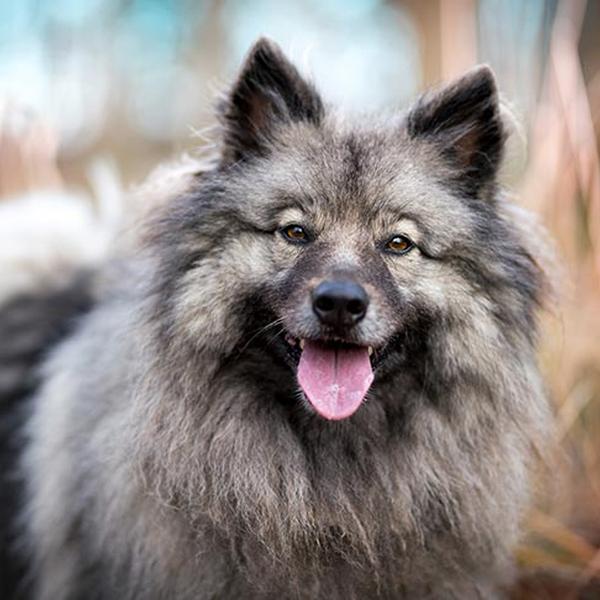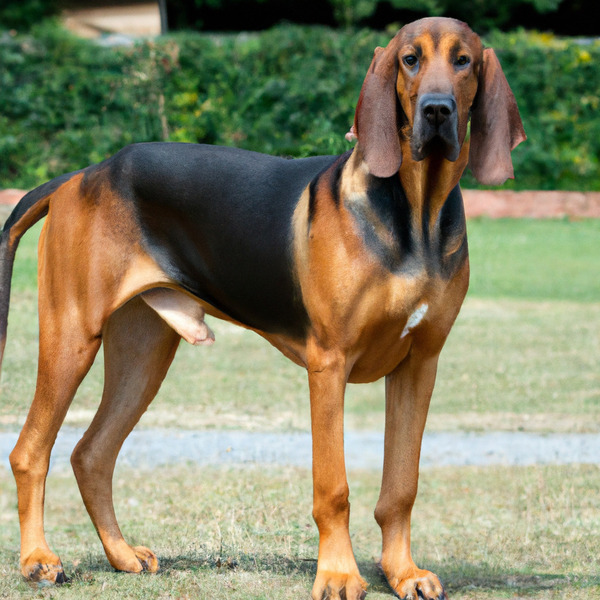Keeshond vs. Hanover Hound: Breed Differences and Similarities
Weight Gain Potential
Which breed eats more: Keeshond or Hanover Hound?
Both the Keeshond and Hanover Hound breeds have an average to high tendency to gain weight if their weight is not closely monitored. It is important to maintain a balance between exercise and food intake to keep them at a healthy weight. This can be achieved by scheduling at least one daily walk and engaging in regular playtime with them.
Hypoallergenic
Are Keeshonds or Hanover Hounds hypoallergenic, or neither?
Unfortunately, neither Keeshond nor Hanover Hound are hypoallergenic, which may not make them the best choice for dog lovers who suffer from pet allergies.
Temperament
What are the personalities of Keeshond and Hanover Hound dogs?
Agile
Obedient
Quick
Intelligent
Bright
Playful
Sturdy
Gentle
Easygoing
Protective
Calm
Shedding Level
Do Keeshonds shed more than Hanover Hounds, or which breed sheds more, Keeshonds or Hanover Hounds?
Keeshonds shed a lot of hair each year, so frequent brushing is essential for reducing shedding and maintaining coat health.
Hanover Hounds are low shedding dogs, requiring minimal coat care.
Watchdog Ability
Which dog breed makes a better watchdog, the Keeshond or Hanover Hound?
Keeshond and Hanover Hound are very good watchdogs. They are a vocal breed and are wary of outsiders, so if someone approaches your home or aims to intrude, these breeds are going to make sure everyone knows about it.
Origin
What is the origin of Keeshond and Hanover Hound dog breeds?
Netherlands
Germany
Ancestry
What are the origins of Keeshond and Hanover Hound breeds?
Samoyed, Chow Chow, Finnish Spitz, Norwegian Elkhound, Pomeranian
Liam Hound, Bloodhound
Date of Birth
When were Keeshond and Hanover Hound breeds first developed?
1700s
17th Century
Eye Color Possibilites
What are the eye colors of Keeshond and Hanover Hound dogs?
Brown
Brown
Nose Color Possibilites
What are the natural nose colors of Keeshond and Hanover Hound?
Black
Black
Coat Color Possibilites
What are the natural colors of the coat for Keeshond and Hanover Hound breeds?
Black
Gray
Fawn
Silver
White
Sable
Brindle
Red
Brindle
Coat Length
What is the typical coat length for Keeshond and Hanover Hound breeds?
Keeshonds have longer coats compared to most dogs.
Hanover Hounds have medium-length coats.
Coat Density
What is the density of the coat of Keeshond and Hanover Hound?
Coat Texture
What is the hair texture of Keeshond and Hanover Hound?
Straight
Litter Size
What is the usual litter size for Keeshond and Hanover Hound?
A Keeshond can have a litter of 12-14 puppies on average. However, it's worth noting that the size of the litters can vary greatly. Factors that can influence litter size include the health of the mother, breeding history, and genetics.
A Hanover Hound can have a litter of 10-14 puppies on average. However, it's worth noting that the size of the litters can vary greatly. Factors that can influence litter size include the health of the mother, breeding history, and genetics.
Adaptability
Keeshonds are highly adaptable and versatile, making them excellent companions for families and individuals of all lifestyles.
Hanover Hounds may have difficulty adjusting to changes in lifestyle and living environments, preferring consistency.
Health Issues
Between Keeshond and Hanover Hound, which breed is more prone to health problems?
While the Keeshond breed is generally healthy, occasional vet check-ups are still necessary to address any health concerns.
The Hanover Hound breed is generally very healthy, requiring minimal vet visits. Still, it's important to keep an eye on their health and seek veterinary care when needed.
Major Concerns
What are the major health concerns for Keeshond and Hanover Hound breeds?
Renal Cortical Hypoplasia
Hip Dysplasia
Mitral Valve Disease
Heart Disease
Ear Infections
Entropion
Ectropion
Hip Dysplasia
Minor Concerns
What minor health issues should be kept in mind when owning Keeshond and Hanover Hound?
Patellar Luxation
Epilepsy
Skin Problems
Congenital Heart Defect
Anesthesia Sensitivity/Allergy
Gastric Dilation Volvulus (GDV) or Bloat
Occasional Tests
What occasional tests are recommended for Keeshond and Hanover Hound breeds?
Cardiac
Eye
Hip
X-Rays
Eye Examination
Physical Examination
OFA
CERF
Yearly Physical Examination
Energy
How do the energy levels of Keeshonds and Hanover Hounds compare?
Keeshonds' high energy levels make them unsuitable for a low-key dog, choose accordingly.
Hanover Hounds thrive on an active lifestyle due to their high-energy nature.
Social Needs
Keeshond vs Hanover Hound social needs comparison
Keeshond and Hanover Hound have above average social needs compared to other breeds. They thrive in environments where they have a lot of interaction with humans and other dogs.
Exercise Needed
Keeshond vs Hanover Hound exercise need comparison.
Keeshonds need only a small amount of physical activity, ideal for busy or elderly people or those with limited space.
Hanover Hounds require significant physical activity and suit those with an active lifestyle.
Sleeping Need
Which of the two sleeps the most/least: Keeshond or Hanover Hound?
Keeshonds sleep less than other breeds but still need adequate sleep for good health.
Hanover Hounds are active and require sufficient sleep to stay healthy.
Drooling Tendency
Which drools more/less, Keeshond or Hanover Hound?
Keeshond minimally drools, ideal for those who dislike drool marks on clothing.
Hanover Hound is an average drooler, monitor for excessive drooling which may indicate health issues.
Tendency to Bark
Do Keeshonds or Hanover Hounds bark more/less frequently?
Keeshond dogs bark and howl frequently and are not recommended for quiet homes.
Hanover Hounds bark moderately when necessary and may also bark due to certain triggers like fear, alarm, boredom, greeting, separation anxiety and compulsive barking.
Territorial
Is the Keeshond or Hanover Hound a better guard dog?
Keeshond and Hanover Hound breeds are generally not considered the best guard dogs as their primary trait is not defense. Although they possess the capability to defend their territory or owners, it may not be their strongest trait.
Mouthiness
Mouthiness Comparison: Keeshond vs Hanover Hound?
Roaming urge
Keeshond vs Labrador: Running away tendency?
Prey Drive
Keeshond or Hanover Hound - which breed has a higher level of prey drive?
Past times
What are some enjoyable activities and ways to keep Keeshond and Hanover Hound entertained?
Walk, Run, Frisbee, Play, Fetch, Eating Snacks, Chewing, Playing, Sniffing, Heel
Walk, Eating Snacks, Play, Run
Activity Level
Which breed has higher energy, Keeshonds or Hanover Hounds?
Keeshonds are medium-energy dogs and typically enjoy socializing and playing casual or even sustained games of chase with other dogs. They may also have occasional periods of barking or racing around the house.
Hanover Hounds are high-energy dogs. They need mental as well as physical exercise. These dogs require a lot of your involvement and without it they can, and will, become problematic dogs.
Tolerance of being left alone
Walks per Week
How many miles should Keeshond or Hanover Hound walk each week?
There's really no limit to how far you walk your dog as long as they're comfortable. For Keeshond, it's at least 8 miles / week. Just remember to build distance and stamina gradually over time.
There's really no limit to how far you walk your dog as long as they're comfortable. For Hanover Hound, it's at least 12 miles / week. Just remember to build distance and stamina gradually over time.
Activity per Day
Do Keeshonds or Hanover Hounds require more exercise?
Both Keeshond and Hanover Hound typically require a minimum of 60 minutes of exercise each day. The exercise can be spread throughout the day and may involve high-energy activities like walking, running, and playing.
Grooming
Which breed is easier to maintain in terms of grooming, Keeshonds or Hanover Hounds?
Keeshonds require significant grooming, including regular trims and professional grooming assistance to maintain their coat. They may also require frequent bathing to keep their coat and skin healthy.
The Hanover Hound has low grooming needs and is easy to maintain.
Brushing Frequency
What is the recommended brushing frequency for Keeshond and Hanover Hound dogs?
Ideally, Keeshond should be brushed at least 2 or 3 times a week (preferably daily) improve shedding.
Hanover Hound should be brushed at least once a week. Of course you can give them more frequent brushes if you find that they are still shedding a lot
Brushing Tools
What brushing tools are used for Keeshonds and Hanover Hounds?
Pin Brush
Slicker Brush
Comb
Nail Clipper
Slicker Brush
Nail Clipper
Cups
How much food should be given to Keeshond or Hanover Hound in cups?
For an average 35-45 pound (16 - 20 kg) Keeshond feed 2.5 cups daily. But, keep in mind, the amount you feed is going to be dependent on the quality of the food you are feeding.
For an average 80-100 pound (36 - 45 kg) Hanover Hound feed 2.8 cups daily. But, keep in mind, the amount you feed is going to be dependent on the quality of the food you are feeding.
Daily Cost
Which breed has a higher daily cost, Keeshond or Hanover Hound?
The average cost of a Keeshond is somewhere $2.50 - $3.20 per day.
The average cost of a Hanover Hound is somewhere $2.10 - $2.70 per day.
Monthly Cost
Which breed has a higher monthly cost, Keeshond or Hanover Hound?
The average per month expenses of a Keeshond is between $84 - $95. This makes an average of $1008 - $1140 per year. It will be on the higher side when the dog is still small because it will need more frequent visits to the vet, shots.
The average per month expenses of a Hanover Hound is between $55 - $73. This makes an average of $660 - $876 per year. It will be on the higher side when the dog is still small because it will need more frequent visits to the vet, shots.
Intelligence
Comparing Intelligence: Keeshonds vs Hanover Hounds
Keeshond is a very intelligent and trainable breed.
Hanover Hounds are average in obedience intelligence but have a high IQ and may cause trouble if left unsupervised.
Sensitivity Level
How do Keeshond and Hanover Hound compare in sensitivity?
This breed is sensitive to its environment and best suited for patient and understanding families with a consistent routine.
This breed is sensitive and requires gentle handling and a calm home environment.
Affection Dependance
Which is the more affectionate dog breed: Keeshond vs Hanover Hound?
Apartment Friendly
Which breed is more apartment-friendly: Keeshond or Hanover Hound?
Keeshonds are good apartment dogs as long as they get enough exercise and stimulation outside of the apartment.
Hanover Hounds can do well in apartments with enough exercise and time outside, but a small yard would be ideal.
Child Friendly
Do Keeshonds or Hanover Hounds have a friendlier temperament towards children?
Keeshonds are good with kids if socialized and trained from a young age.
Hanover Hounds make excellent family pets for kids due to their gentle, protective nature and calm temperament.
Senior-friendly
Which dog is more suitable as a pet for the elderly - Keeshond or Hanover Hound?
Cat Friendly
Do Keeshond or Hanover Hound breeds have a better compatibility with cats?
Keeshonds are good with cats, but early training is needed to prevent chasing behavior.
Hanover Hounds are somewhat cat friendly and can be trained to get along with cats.
Dog Friendly
Which breed is more sociable with other dogs: Keeshond or Hanover Hound?
Keeshonds and Hanover Hounds are friendly, active and loyal companions. They generally love to be around other dogs, making them a good family pet for some.
Pet friendly
How do Keeshond or Hanover Hound dogs interact with other pets?
Stranger Friendly
Which breed is more friendly with strangers: Keeshond or Hanover Hound?
Keeshonds are highly friendly around strangers.
Hanover Hounds are quick to announce strangers and can be standoffish or suspicious.
Playfulness
Which breed is more playful between Keeshond and Hanover Hound?
Keeshonds have an average level of playfulness, enjoying playtime like most dogs but not excessively so.
Hanover Hounds are very playful, so adopting an older one might be a better option for a more relaxed experience.
Trainability
How do the trainability levels of Keeshonds and Hanover Hounds compare?
Keeshonds are usually easy to train but require consistency to fully obey commands.
Hanover Hounds may require more time and patience to learn commands, but with consistency, they can be trained.
Compare Keeshond with other breeds
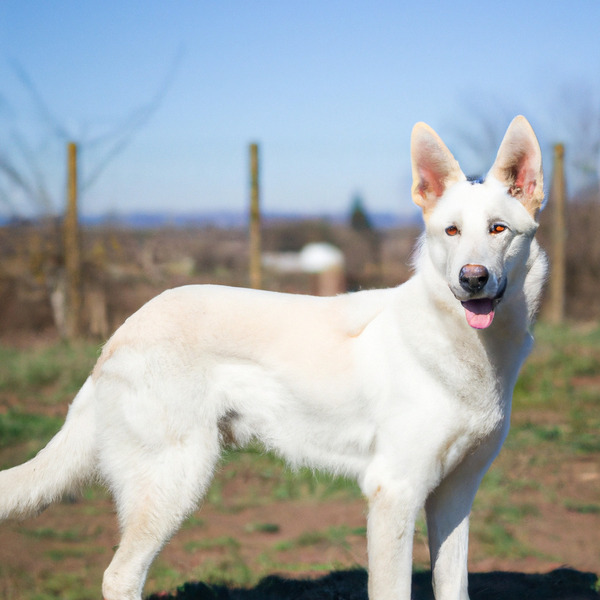
White Shepherd
Keeshond vs White Shepherd

American Hairless Terrier
Keeshond vs American Hairless Terrier
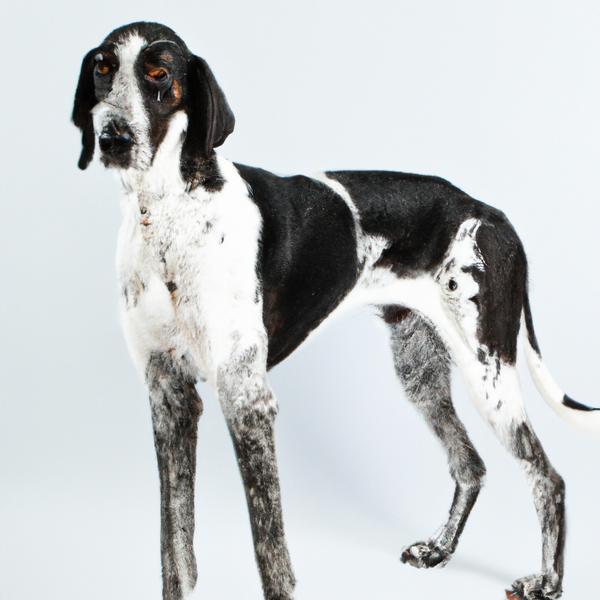
Spantriever
Keeshond vs Spantriever

Papiox
Keeshond vs Papiox
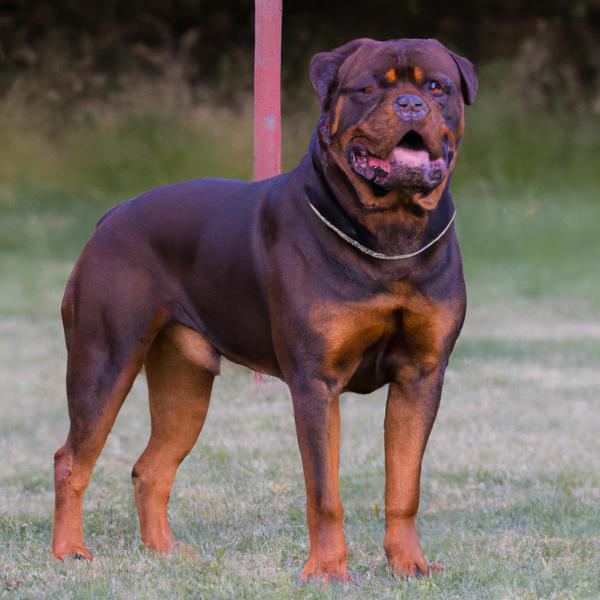
Rottie Bordeaux
Keeshond vs Rottie Bordeaux
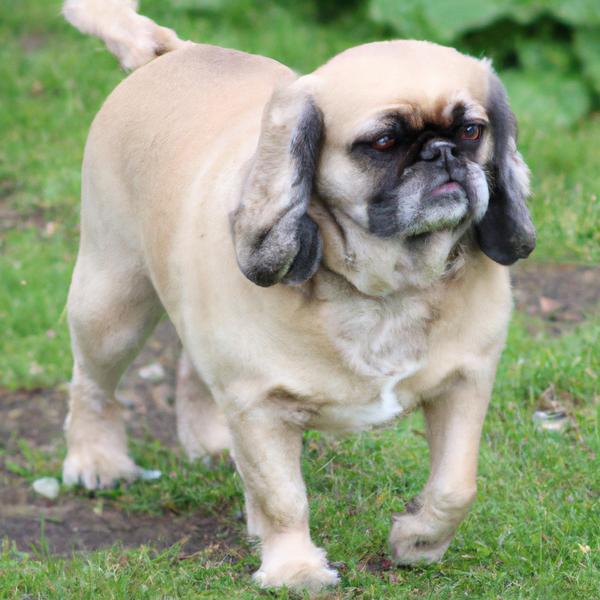
Cocker Pug
Keeshond vs Cocker Pug
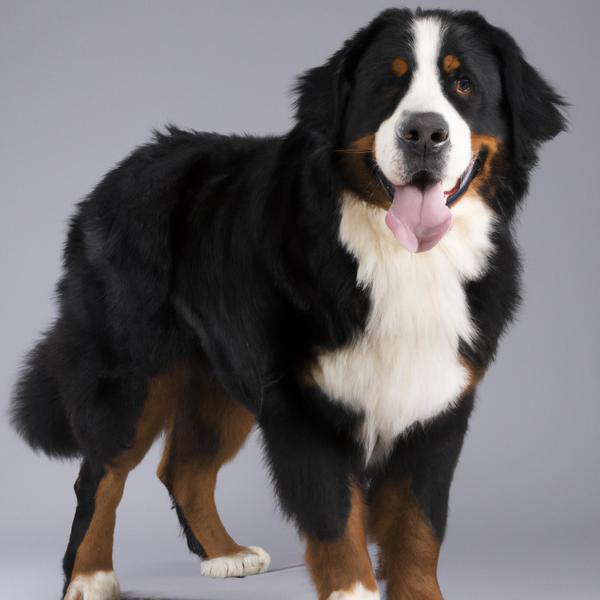
Saint Bernese
Keeshond vs Saint Bernese
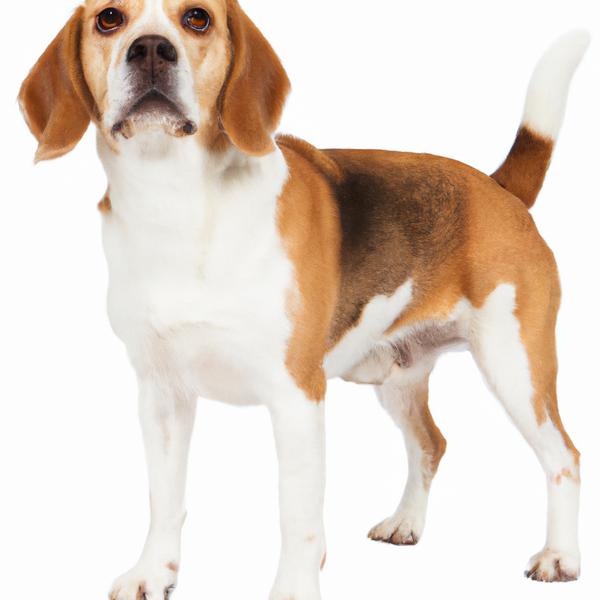
Beagleman
Keeshond vs Beagleman
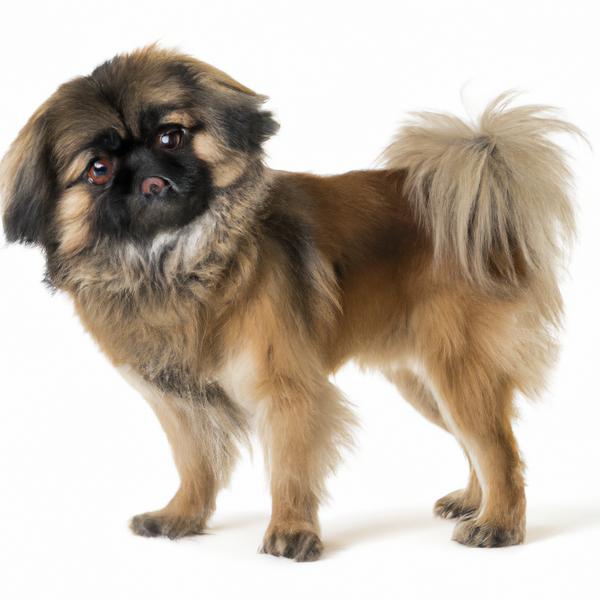
Peke-A-Boo
Keeshond vs Peke-A-Boo

Hava-Apso
Keeshond vs Hava-Apso
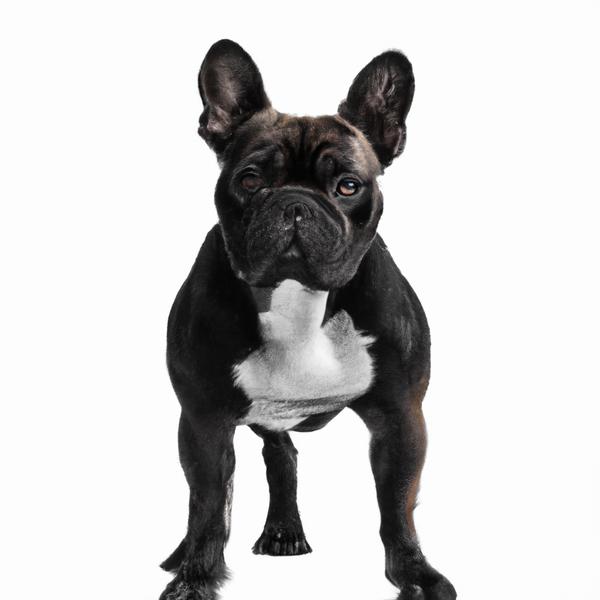
French Bull Dane
Keeshond vs French Bull Dane
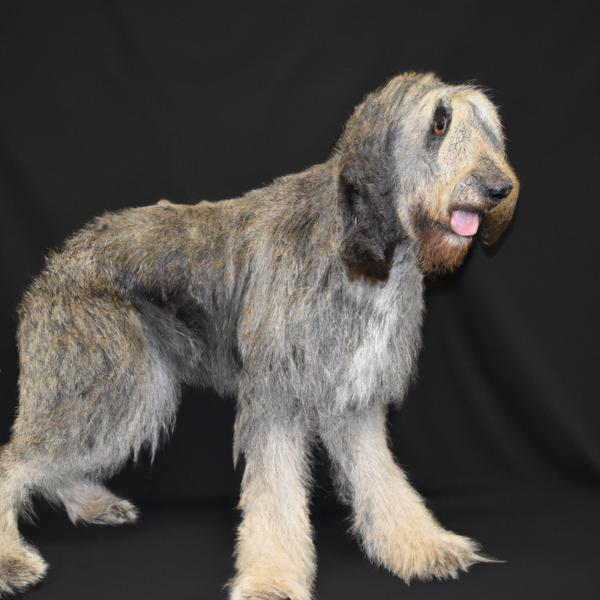
English Coonoodle
Keeshond vs English Coonoodle
